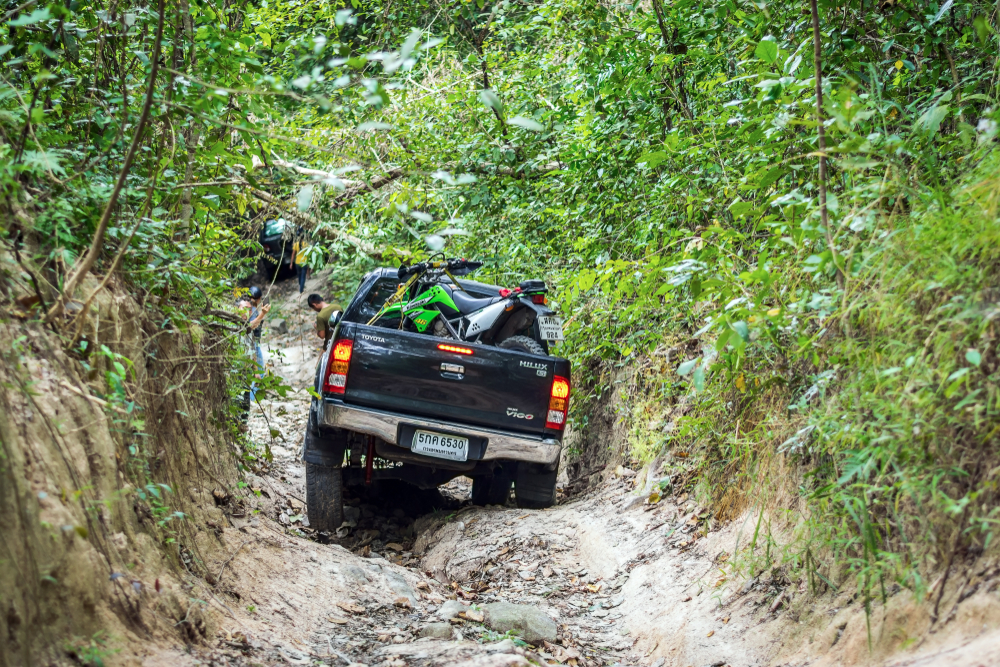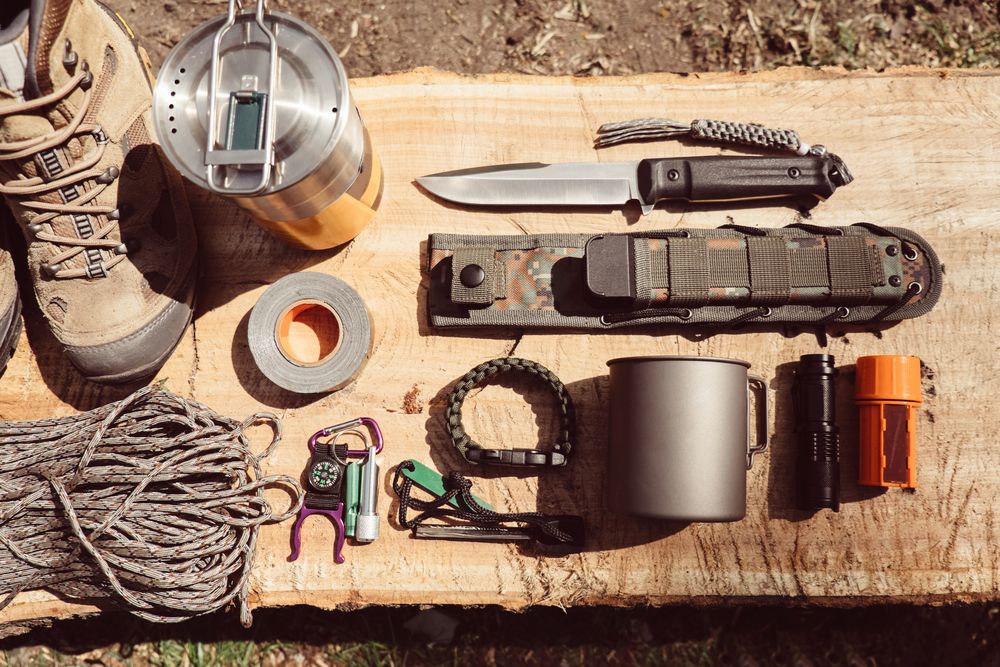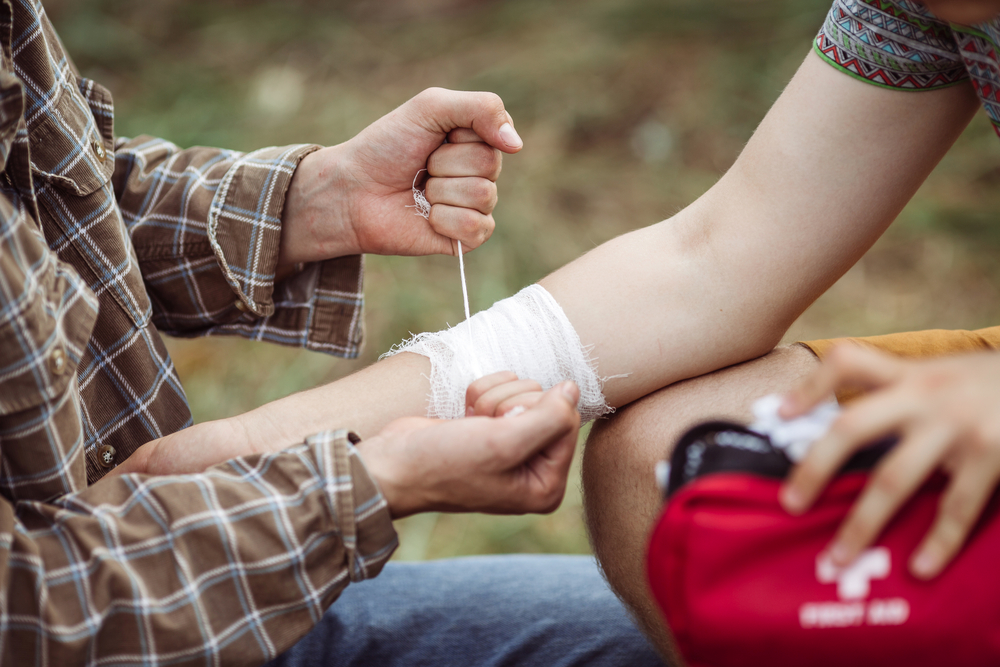Your Must-Carry Survival Kit When Offroading

If you love going off-road with your truck or jeep, there’s always a chance you could get stranded in the middle of nowhere. Depending on how deep into the wilderness you like to explore, it might take you hours or days to reach the nearest road or house to call for help. Your cellphone might not have service in the deep recesses of nature, so you really need to prepare for worst case scenarios. Don’t get stuck in the middle of nowhere with zero supplies to your name. Go off-road the right way with this survival kit checklist.
Driving Home in One Piece
When you’re cruising around in an off-road truck or Jeep and your vehicle breaks down, the best solution here is to evaluate the situation before calling a tow truck or limping it down the road. Some situations will call for more serious measures like calling for tow help while others will require the use of your survival kit. Your survival kit should include some auto repair essentials, so you can repair your truck or jeep temporarily and drive it home. This will help you get your vehicle back safely to your garage or a repair shop so more extensive repairs can be made.
Here are some items to include to help you make it home in one piece:
● JB Weld
JB Weld will come in handy when you need to seal two pieces of metal together, such as a leaky oil pan or a broken metal brace. Fix-a-Flat, hose repair tape, and jumper cables are self-explanatory. You could always puncture one of your tires when you’re driving over rocks and boulders, so bring along a tire plugger. You can use Duct tape and rope in case you need to jerry-rig two items together. Driving home is always better than calling a tow truck.

Staying Alive in the Wild
If you can’t drive home, and you’re forced to make do in the wild until help arrives or you reach signs of civilization, you’ll need some nutrients to keep you alive and well-nourished. Freeze-dried food is a great place to start. It lasts for months or even years on end, so you don’t have to worry about your survival kit getting rancid.
While fruits and vegetables are important, raisins and dried figs might not do you much good in the wild. Instead, choose heartier fare like beef or venison jerky. It’s packed with protein to keep you going, so you can hold off on killing a bear—for now.
Of course, don’t forget to pack plenty of water in your truck or jeep. You might also want other beverages like Gatorade for a healthy dose of electrolytes. When the going gets tough, remember the rule of 3s. As humans, we can usually last no more than 3 minutes without air, 3 days without water, and 3 weeks or 30 days without food. Keeping a full gallon or two on hand should last you a while.
Finding Your Way Home
You’ll have to stay out in the wilderness indefinitely if you can’t find your way home. That’s why every survival kit should include a compass. Double-check your compass to make sure it’s working before you head out on the trail. It’s best to buy a fail-safe baseplate compass with a lanyard, so you don’t have to worry about accidentally dropping or breaking this precious survival tool. Having a map of the area will also come in handy. Using a compass doesn’t make a lot of sense if you don’t know which direction to go.
Making a Bed for the Night
If you happen to get stranded in the rain or you need to spend the night outdoors, having a tent would be ideal, but no one expects you to drive around with all your camping gear, unless you’re on vacation that is. Instead, keep a plastic blue tarp in your vehicle. You can use this handy tool to shield yourself from unruly weather or as a sleeping bag to keep warm at night. If you’re running low on water, you can also use it to collect rainwater.
Getting Attention
You can increase your chances of being found in the wild if you carry around a set of emergency flares. This can really make or break your chances of survival if you’ve ventured way off the beaten path. Rangers and the occasional hiker might see one of your flares if you’re in or near a national park. You can also use flares to make a fire when you’re in a pinch.
Avoid Serious Injury
Keep a first-aid kit on hand in case you get injured. Accidents happen and a first aid kit can come in handy for cuts, scrapes, etc. Always make sure to evaluate the medical situation and disinfect any wound whenever possible with the basic medical supplies.

Starting a Fire
You might need to start a fire if you get stranded for more than a few hours. Bring along a lighter and some waterproof or stormproof matches. Nothing will ruin your mood like pulling a handful of moist matches out of your pocket. Give yourself more peace of mind with the ultimate fire-starting tool.
Additional Survival Essentials:
● Flashlight (solar-powered is a great choice)
● Waterproof Jacket or Pullover
● Water Filtration System (in case you find yourself drinking out of a stream)
● Emergency Communication System
Keeping these essentials on hand dramatically increases your chances of survival. Remember that the average search and rescue operation lasts about 10 hours. You should have everything you need to last more than 24 hours, with the gear listed above. If you’re avid about taking your off-road truck on new adventures, play it safe and bring along some survival essentials.
- Last updated on .
- Hits: 3862
 How to resolve AdBlock issue?
How to resolve AdBlock issue?